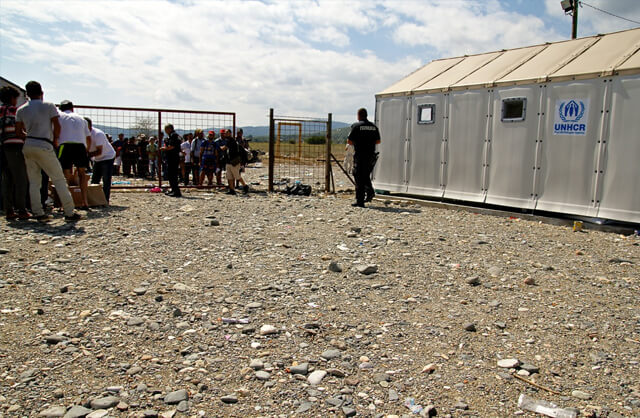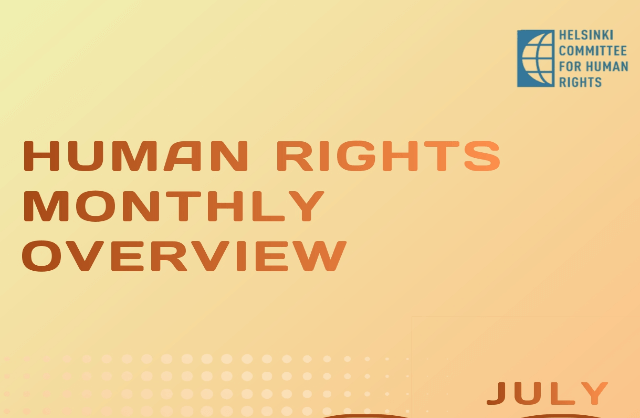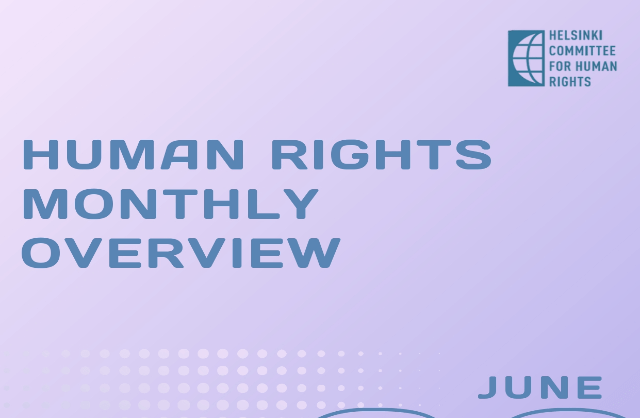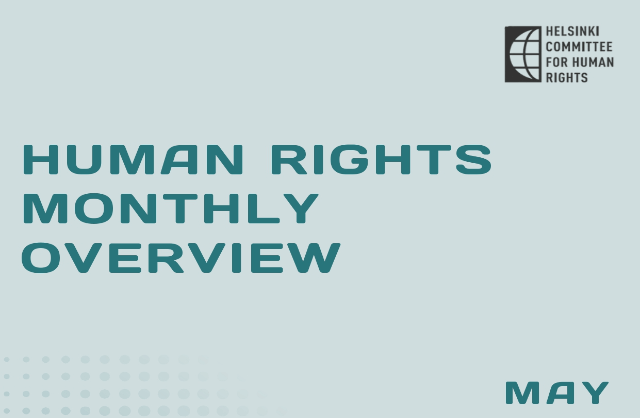The situation at the border crossings Gevgelija and Kumanovo for the period of March, 2018
April 12, 2018

Monthly report for March 2018 on the situation at the border crossings Gevgelija and Kumanovo includes the following topics: Available facilities and conditions at the camp, Institutional treatment and irregular migration.
Gevgelija
The situation in the RTC Vinojug, Gevgelija, was relatively peaceful and stable over the course of March, 2018. It is symptomatic that not a single group of refugees was brought to the camp over the course of the entire month (with the exception of the last day) which led to a lack of official statistics on the number of refugees/migrants that transited through the Republic of Macedonia.
Available facilities and conditions
At the start of the month 47 refugees of various origin were accommodated in the camp.
Regular coordinating meetings are held in the camp between the organizations and institutions working on the field. At the start of the month, the janitors refused to do their duties as a result of their unpaid wages.
At the suggestion of the Crisis Management Center, the renovation of the reception tent, which is located in immediate vicinity to the camp, started. The tent was used to accommodate the refugees coming from Greece. At the same time, the camp was also disinfected due to scabies that one person was diagnosed with.
Legis sporadically holds workshops for the refugees accommodated in the camp, but over the weekends they have no activities of any kind.
On 21.03.2018, an organized visit was paid to the camp by about 50 students from the Primary School “Krste Misirkov” within the international project “Humanity has no border: Reach out and lend a helping hand”.
The refugees have the chance to take a walk through the town accompanied with members of the personnel from the camp.
In the first half of the month, there was no internet connection in the camp. In the second half of the month UNHCR provided internet coverage.
Institutional treatment
About 40 refugees who submitted an asylum request over the course of the previous month were transported to the Reception Center for Asylum Seekers in Vizbegovo gradually and on several occasions. For example, on 06.03.2018, three families were taken to Skopje with a police vehicle, on 08.03.2018, 10 more persons were transported, while on the next day, the last group of 15 asylum seekers was taken to Skopje, with a police van of the border police. After their departure, a total of 6 refugees originating from Afghanistan remained in the camp.
On 28.03.2017, a four-member family originating from Afghanistan was transported to Greece at their own request. They were transported by the police to “Stone 59” at the borderline, where they were met by Greek police officers and transported to a police precinct.
From the mixed patrol teams, the foreign police forces of the Czech Republic and Croatia have been observed, while over the course of the month a new team of police officers from Hungary also arrived.
It is symptomatic that over the course of the entire month, the police have not brought a single group of refugees to the camp. It is assumed that the refugees who got caught down illegal roads were immediately deported to Greece, without previously being brought to the camp. This treatment calls into question the compliance with their rights, i.e. it is unclear whether they were provided with medical aid, legal aid with regards to the possibility to seek asylum or even basic humanitarian relief. According to the records kept by IOM, between the 1 and 20 March, 2018, a total of 263 refugees/migrants transited through the Republic of Macedonia in both directions, i.e. from Greece to Macedonia and from Serbia to Macedonia.
The first group was brought on 28.03.2018, i.e. a total of 8 refugees originating from Iran were brought to the camp, who had previously been accommodated in the camp in Tabanovce, and had reached Gevgelija by bus. After they were questioned by the police, they were held for temporary accommodation in the camp and were provided with adequate clothes. With this, the number of refugees reached 10, 2 of whom were of Afghan origin and 8 originating from Iran. On 31.03.2018, two refugees originating from Morocco, aged 28 and 30, were brought to the camp. The Red Cross provided them with initial aid, whereby they were accommodated in the camp. On the same day, after midnight, four refugees originating from Syria, and one minor (aged 17), originating from Libya, were brought to the camp. Apart from their visible exhaustion, they were all in good health. The minor was assigned a guardian by the MLSP and all the people were accommodated in the camp. With this, the number of refugees in the camp increased to 17.
Kumanovo
At the start of the month, a total of 46 refugees originating from Algeria, Afghanistan, Iran, Syria, Pakistan, Turkey, Iraq and India, were accommodated in the camp. Over the course of the month the number reached a peak at 62 refugees, but started gradually declining afterward. The number of women and children among them is relatively low. The directions of movement are different, i.e. refugees coming from Greece have been caught, as well as refugees who are voluntarily coming back from Serbia.
Available facilities and conditions
Like the previous month, this one also started without an internet connection in the camp. The connection was set-up again sometime mid-month.
Regular coordinating meeting are held in the camp between the organizations and institutions working on field, organized by the MLSP or the representatives of the CMC. During the meetings, the problems and situations related to the refugees are discussed.
The refugees who are temporarily accommodated in the camp and who have been diagnosed with a certain health problem, are regularly provided with the necessary treatment.
On 09.03.2018, a workshop was held in the camp by Legis, as a part of the Erasmus+ program.
Institutional treatment
On 20.03.2018, 3 refugees arrived in the camp, two of whom originated from Morocco and one from Pakistan. According to the testimony of the Pakistani, he had arranged with smugglers from Greece to transport him to Germany, and he paid them 4000 EUR for this. However, not only did they not take him to the desired destination, but when they reached Serbia, they took his money, held him hostage and contacted his family asking for more money so that they would let him go alive. He managed to escape and report the case to the police, and subsequently got back to Macedonia. On 23.03.2018, a five-member family originating from Iran – a husband, wife and their two daughters and one son, arrived at the camp. According to their testimony, they were deceived by smugglers, who took their money and abandoned them on the way.
On 26.03.2018, two families who had been accommodated in the camp i.e. the five-member family which had arrived 3 days ago, and another three-member family (husband, wife and 11-month baby), all of them originating from Iran, left the camp. They were all transported to Greece at their own request. With this, no women or children were left in the camp. During the night between the 30 and 31, 4 families originating from Iraq arrived at the camp, numbering a total of 20 people of Kurdish ethnicity consisting of 5 men, 6 women and 9 children (4 boys and 5 girls).
The IOM is conducting two procedures for return of refugees to their home countries, i.e. one refugee returning to Iran and one returning to Morocco. Moreover, two people accommodated in the camp are in the midst of a family reunification procedure.
On 31.03.2018 food and humanitarian aid was provided in the camp to 8 refugees originating from Syria and one originating from Afghanistan who had been deported from Serbia. According to their request, they were immediately transported to Greece, without getting held up in the camp.
Irregular migration
Over the course of March 2018, the Ministry of Interior, in its bulletins, registered a single criminal and legal event related to migrants. On 18.03.2018, on the motorway Gevgelija- Skopje during in an attempt to inspect a passenger vehicle, the police found 6 refugees originating from Pakistan. The driver managed to escape, but the police found his documents in the vehicle, whereby a procedure for his apprehension is underway.


